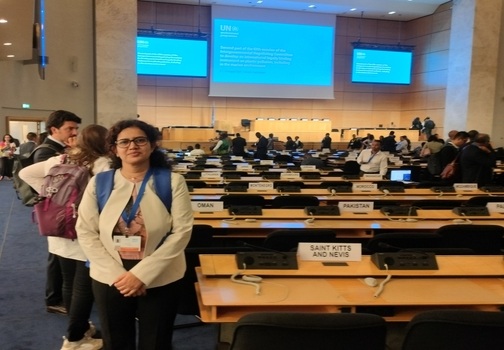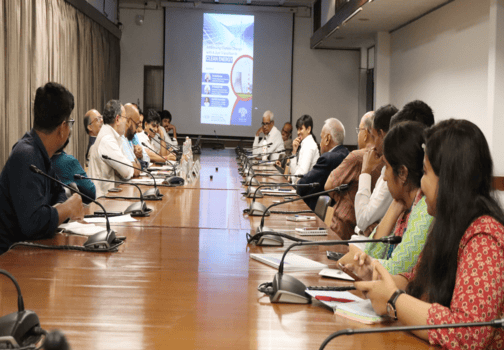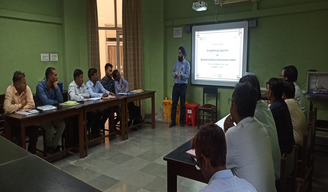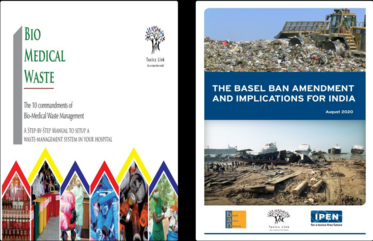Clean drinking water in areas with arsenic-contaminated drinking water
GOVERNMENT OF INDIA
MINISTRY OF JAL SHAKTI
DEPARTMENT OF DRINKING WATER AND SANITATION
RAJYA SABHA
STARRED QUESTION NO. *188#
ANSWERED ON 07/08/2023
Clean drinking water in areas with arsenic-contaminated drinking water
*188#. SMT. MAHUA MAJI:
Will the Minister of JAL SHAKTI be pleased to state:
(a) the steps taken by Government, so far, to collect data of people affected by arsenic contaminated water in the country;
(b) the details thereof, State-wise and district-wise;
(c) the households that are forced to drink arsenic or fluoride-contaminated drinking water, State wise and district-wise details;
(d) the steps taken/proposed to be taken by Government to provide safe drinking water in areas having arsenic-contaminated drinking water in various States of the country including Jharkhand; and
(e) the details thereof?
ANSWER
THE MINISTER OF JAL SHAKTI (SHRI GAJENDRA SINGH SHEKHAWAT)
(a) to (e): A Statement is laid on the Table of the House.
Statement referred to in the reply to Parts (a) to ( e) in respect of Rajya Sabha Starred Question No. *188# for reply on 07/08/2023 regarding clean drinking water in areas with Arsenic-contaminated drinking water asked by Smt. Mahua Maji.
(a) to (e): Government of India is implementing Jal Jeevan Mission (JJM) – Har Ghar Jal, since August, 2019, in partnership with States, to make provision of potable tap water supply in adequate quantity, of prescribed quality and on regular & long-term basis to every rural household. “Water”
being a state subject, planning, approval and implementation of drinking water supply schemes, lies with State/UT governments. At the time of announcement of Jal Jeevan Mission, 3.23 Crore rural households were reported to have tap water connections. As reported by States/UTs as on 02/08/2023, more than 9.47 crore additional rural households have been provided with tap water connections under JJM. Thus, as on 02/08/2023, out of 19.41 Crore rural households in the country, more than 12.71 Crore (65.49%) rural households are reported to have tap water supply in their homes. Under JJM, while allocating the funds to States/ UTs, 10% weightage is given to the population residing in habitations affected by chemical contaminants.
States/ UTs have been advised to plan and implement piped water supply schemes based on alternative safe water sources for the villages with water quality issues. Since, planning, implementation and commissioning of piped water supply scheme based on a safe water source may take time, purely as an interim measure, States/ UTs have been advised to install community provide potable water to every household at the rate of 8–10 litre per capita per day (lpcd) to meet their drinking and cooking requirements.
Under Jal Jeevan Mission, as per existing guidelines, Bureau of Indian Standards’ IS:10500 standard is to be adopted for ensuring safe drinking water supply. States/UTs have been advised to carry out testing of water quality on a periodic basis, i.e. once in a year for chemical and physical parameters, and twice in a year for bacteriological parameters and take remedial action wherever
As reported by States/UTs, as on date, there are 2,087 drinking water quality testing laboratories at different levels viz. State, District, and sub-division and / or block level in the country. To encourage water quality testing to ensure potable drinking water supply, States/ UTs have opened water quality testing laboratories to general public for testing of their water samples at a nominal rate. States/ UTs have been advised to identify and train 5 persons, preferably women, in every village to conduct water quality testing using Field Testing Kits (FTKs)/ bacteriological vials at village level and report the same on the WQMIS portal. So far, as reported by states/UTs, more than 22.45 lakh women have been trained for testing water using FTKs.
Since launch of JJM, year-wise, testing of water quality samples in the laboratories has increased from around 40 lakhs samples in 2018-19 to more than 62 lakh samples in 2022-23. Similarly, testing of water quality using FTKs has increased from around 11 lakh samples in 2018-19 to 1.07 crore water samples during 2022-23.3
To enable States/ UTs to test water samples for water quality, and for sample collection, reporting,monitoring and surveillance of drinking water sources, an online JJM – Water Quality Management Information System (WQMIS) portal has been developed. The State–wise details of water quality test reported through WQMIS are available in public domain and can be accessed at:https://ejalshakti.gov.in/WQMIS/Main/report
Under JJM, contamination in drinking water sources in rural areas is monitored on habitation wise.14,020 Arsenic-affected habitations and 7,996 Fluoride-affected habitations were reported by States/UTs as on 1st August 2019. As reported by States/UTs, as on 22/03/2023, safe drinking water has been made available in all such habitations.






